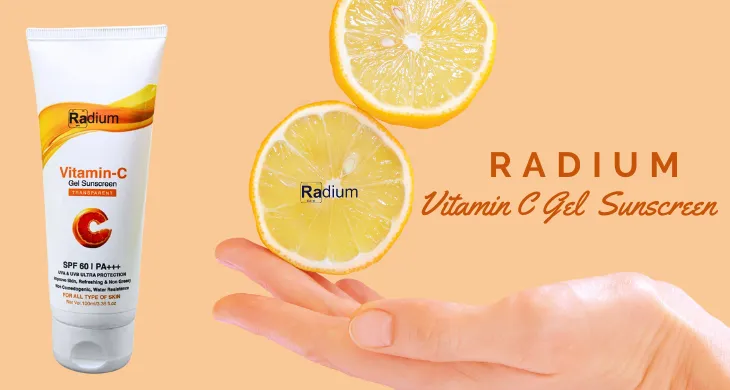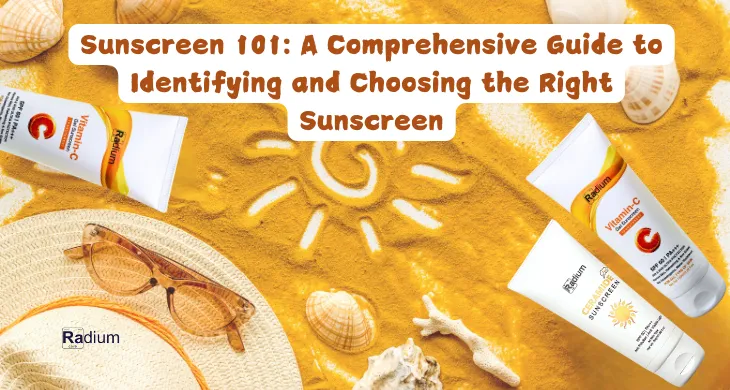When it comes to skincare, sunscreen is often seen as the most essential product in any routine. This is not just a summer staple-it requires a year-long. However, with so many sunscreen products on the market, selecting the right sunscreen may seem impossible. In this broad guide, we will break to choose a variety of sunscreen, their benefits and the right one for your skin type and lifestyle.
The Importance of Sunscreen
Sunburn and skin tumors are only the most basic issues associated with excessive sun exposure, which brings ultraviolet (UV) radiation in contact with the skin. Therefore, sunscreen becomes imperative in that relation. The American Academy of Dermatology states that the risk of skin cancer and other ultraviolet-related skin problems can be reduced greatly using a broad spectrum sunscreen with SPF of 30 or more.
Types of Sunscreen
1. Mineral Sunscreen (Physical Sunscreen)
Mineral sunscreens (i.e., physical suncreens) containing active ingredient such as zinc oxide and titanium dioxide. These minerals form a physical barrier at the dermal surface that reflects and disperses UV light. Here’s a deeper look at their benefits and drawbacks:
Pros of Mineral Sunscreen
- Suitable for Sensitive Skin: Mineral sunscreens are more prone to not cause irritation and therefore better suited for people with sensitive skin.
- No Absorption: In contrast to chemical sunscreens, mineral sunscreens do not penetrate the blood stream due to their properties which represents a major safety benefit for people worried about exposure to chemicals.
- Immediate Protection: Mineral sunscreens become effective as soon as they are applied, preventing exposure to ultraviolet rays immediately.
Cons of Mineral Sunscreen
- White Cast: A very frequent criticism of mineral sunscreens is the whitish cast that they produce on the skin. Nevertheless, this has been the subject of numerous modern formulations by way of tint options.
- Heavier Consistency: Mineral sunscreens can be “greasier” on the skin than their chemical sunscreens.
- Removal: Mineral sunscreens are more difficult to remove at the end of the day, in most cases making it necessary to take a good cleansing regimen.
2. Chemical Sunscreen
Chemical sunscreen has active agents such as avobenzone, octocrylene, oxybenzone, octinoxate, and homosalate etc. These elements absorb UV light and turn them into harmless heat. What you should know here:
Pros of Chemical Sunscreen
- Sheer and light: Chemical sunscreen is often more sheer and mix easily in the skin, making them a popular choice for those who prefer a mild experience.
- An invisible application: Unlike mineral sunscreen, chemical sunscreen does not show white, and therefore compatible with any skin type.
- Versatility: Chemical sunscreen is available in the form of lotions, sprays and gels and offer extensive alternatives to various requirements and lifestyle.
Cons of Chemical Sunscreen
- Capacity for irritation: chemicals used in these sunscreen may cause irritation or allergies in some individuals, especially with sensitive skin.
- Absorption: There is a discussion about the possible health effects of systemic absorption of chemical suncane materials for the body. Nevertheless, regulatory agencies (eg, FDA) still take a look and assure their safety and purpose.
- Delayed effectiveness: Chemical sunscreen should take at least 15–30 minutes to act after application, which makes it important to apply sunscreen before contact with the sun.
3. Hybrid Sunscreen
Hybrid sunscreens combine the best of both worlds by incorporating both mineral and chemical ingredients. In this formulation, it is intended to prevent broad geographic and/or species exposure with a roughed-out consistency and improved blendability. Here’s a closer look:
Pros of Hybrid Sunscreen
- Broad-spectrum protection: Hybrid sunscreen provides extensive spectrum protection against UVA and UVB rays.
- Light stability: They have a mild, aerial stability that makes them easy to wear.
- Versatility: Hybrid sunscreen is suitable for a wide range of skin types and preferences.
Cons of Hybrid Sunscreen
- Sensitivity Concerns: Although in most cases they display a good tolerability,for those with extremely sensitive skin,it is still possible to feel irritation.
- Complex Formulation: Formulation, through the selection of the amount of the ingredients, can some times result in a less stable formulation, which necessitates proper storage and handling.
How to Choose the Right Sunscreen

The choice of sunscreen is based on several factors, including skin types, lifestyle and personal needs. This is a wide guide to help you make a well -informed option:
1. SPF and Broad-Spectrum Protection
SPF should always be considered, along with broad-spectrum protection, when thinking about skin protection. The American Academy of Dermatology suggests using sunscreen with at least SPF 30. SPF explains how sunscreen filters UVB radiation, which produces sunburn. The broad-spectrum protection allows sunscreen to absorb UVA as well as UVB rays that reach the dermis and causes pre-paradise aging and skin cancer.
2. Skin Type Considerations
Skin type is critical to select proper sunscreen. This is an outline of the types of sunscreens different skin types can use:.
Dry Skin
If you suffer from dry skin, then choose cream-based or lotion-based sunscreens with hydrating agents, such as hyaluronic acid or glycerin. Use of these formulations can be used to seal moisture and prevents UV light although these substances are known to be photosensitive.
Oily Skin
Lightweight and gel and water-based sunscreens are suitable for oily skin. Search for oil free and non- comedogenic products that will not close your pores or make your skin greasy.
Sensitive Skin
Sensitive skin is best suited with gentle, non-irritating sunscreens. In general, mineral sunblock is the best for sensitive skin since it is least likely to irritate or cause allergic reactions.
Acne-Prone Skin
When you have acne-vulnerable skin, opt for non-comedogenic, mineral, or hybrid sunscreens that will not clog your pores. Whereas formulations form the foundation for what the consumer buys, look for formulations that are tailored to suffer from acneous skin and that contain ingredients capable of providing oil-control.
3. Additional Considerations
In addition to SPF, broad-spectrum protection and skin type, there are some other views when selecting sunscreen:
Water Resistance
In case of swimming or participation in activities that cause sweat, select a water-resistant sunscreen. While no sunscreen is completely waterproofing, water-resistant formulas can provide protection in contact with water for 40 or 80 minutes. Remember to apply again as required.
Expiration Date
Always check the expiry date on your sunscreen. Expedited sunscreen can spoil its activity and expose your skin to harmful UV radiation.
Additional Ingredients
Some sunscreen contain additional ingredients that provide benefits beyond UV security. For example, sunscreen antioxidants with vitamin C can provide protection, while people with green tea or niacinamide can help calm and hydrate the skin.
Recommendation

We suggest you to apply Radium Gel Sunscreen and Radium Ceramide Sunscreen with matte finish and natural feeling. It is a high-quality sunscreen suitable for patients with oily skin supported by SPF 50+ PA+ broad-spectrum and protects against UVA, UVB, and Long Range UV. This non-greasy sunscreen also contains an oil control component, named Airlicium, which can trap up to 7 times of its weight sebum in a few seconds to clear shine and reduce the visibility of pores.
Application Tips
Choosing the right sunscreen is only half the battle. Proper application is equally important to ensure maximum protection. Following are some suggestions for applying sunscreen effectively):
1. Apply Generously
Surprisingly, most individuals do not apply the recommended amount of sunscreen to get complete sun product SPF. Apply about one ounce (a shot glass amount) of sunscreen to all exposed parts of your body. For the face, apply a nickel-sized amount.
2. Apply Ahead of Time
Chemical sunscreens need about 15-30 minutes to start working after application, so apply them ahead of sun exposure. Mineral sunscreens, on the other hand, provide immediate protection but still benefit from being applied a few minutes before going outside.
3. Reapply Regularly
Reapply sunscreen every two hours, or at the end of a swim or sweating. And even water-repellent sunscreens are degraded with use and water treatment.
4. Don’t Forget Forgotten Areas
Amongst the frequently overlooked areas are the ears, posterior neck sides, soles and lips. Protection from sunburn and skin cancer should be obtained using SPF lip balm.
Conclusion
Choosing a suitable sunscreen is an important stage in protecting your skin from the harmful effects of UV rays. Through the understanding of a variety of sunscreen, keeping in mind your skin -related background and lifestyle, as well as careful use of application techniques, you can guarantee your skin and its safety health during the year. Remember, sunscreen is not only necessary in one summer – it is a daily requirement to maintain healthy, young skin.
